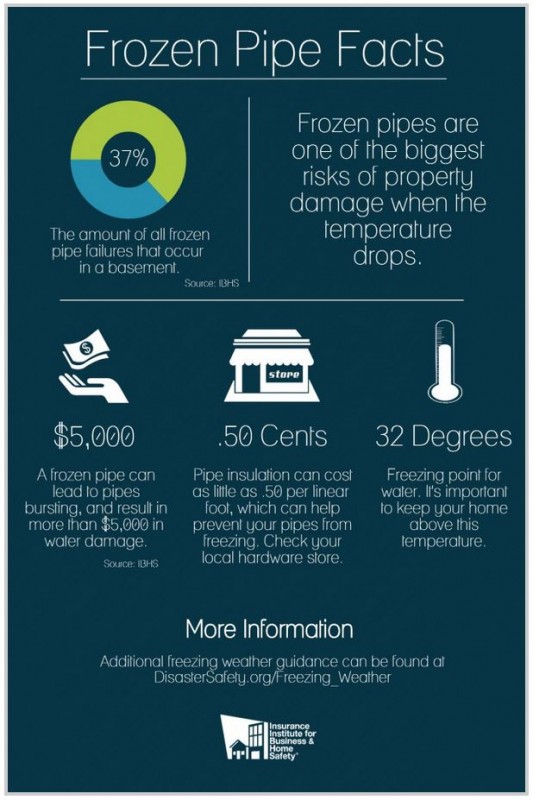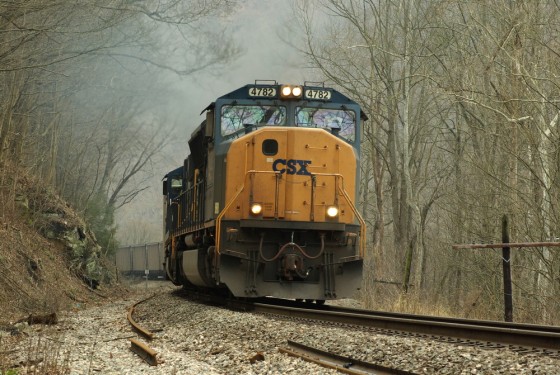Unrelenting frigid weather often means frozen water pipes – one of the biggest risks of property damage. In fact, a burst pipe can cause more than $5,000 in water damage, according to IBHS research.
Structures built on slab foundations, common in southern states, frequently have water pipes running through the attic, an especially vulnerable location. By contrast, in northern states, builders recognize freezing as a threat and usually do not place water pipes in unheated portions of a building or outside of insulated areas.
Freezing temperatures can be prevented with the installation of weather stripping and seals. This offers two major benefits: keeping severe winter weather out of a structure, and increasing energy efficiency by limiting drafts and reducing the amount of cold air entering.
These areas should be inspected for cold air leaks to determine where sealing is needed:
- Windows and doors
- Vents and fans
- Plumbing
- Air conditioners
- Electrical and gas lines
- Mail chutes
IBHS recommendations:
- Provide a reliable back-up power source, such as a stand by generator, to ensure continuous power to the building.
- Interior building temperature can be monitored by a central monitoring company to ensure prompt notification if the interior of the building reaches low temperatures during after hours, power outages or idle periods.
- Recessed light fixtures in the ceiling below the open area that is directly under a roof, such as attic space, should be insulated to prevent the release of heat into the attic.
- Check to see if there is any visible light from recessed light fixtures in the attic.
- If there is, they are not adequately sealed or insulated. Sometimes, especially in low sloped roof buildings, the space above a suspended ceiling located below the roof may be heated and cooled like the occupied area below.
- If that is the case, there is no need to insulate above the suspended ceiling or seal the ceiling’s penetrations.
- Insulate all attic penetrations such as partition walls, vents, plumbing stacks, electric and mechanical chases, and access doors that are not properly sealed.
- Ensure proper seals on all doors and windows. Depending on the building or room size, fan tests can be conducted to ensure room and pressurization tests.
- Seal all wall cracks and penetrations including domestic and fire protection lines, electrical conduit, other utility service line, etc.
- Sprinkler systems should be monitored by a constantly attended central station to provide early detection of a sprinkler pipe rupture due to freezing.
- Insulation and/or heat trace tape with a reliable power source may be installed on various wet sprinkler system piping. This includes main lines coming up from underground passing through a wall as well as sprinkler branch lines.
- UL-approved gas or electric unit heaters can be installed in unheated sprinkler control valve/fire pump rooms. If backup power is provided, the heaters should also be connected to this power source.
- A monitored automatic excess flow switch can be placed on the main incoming domestic water line to provide early detection of a broken pipe or valve when the space is unoccupied.




